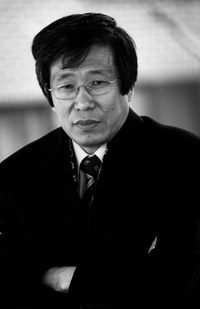
We often hear that South Korea is rapidly becoming a multicultural country these days. At first glance this seems to be true as approximately 1.2 million foreigners currently reside in Korea, and more than 8,000 foreign brides come to Korea each year to marry Korean men. Indeed, interracial marriage between Korean men and foreign women seems to be fashionable lately. As a result, one can see half-Korean children affectionately playing with full-Korean children in the countryside, and studying together in schools.
Has Korea really become a multicultural society? The answer may be"not yet," if not"no." Unlike the United States, which is truly a multicultural and multiethnic country, Korea is only in the fledgling stages of multiculturalism. Strictly speaking, we are striving to embrace minority cultures rather than seeking to build a multicultural society in which different cultures exist equally with the same weight and importance. When we say America is a multicultural nation, we assume there is no longer a single dominant culture in American society, at least theoretically. When we say Korea is a multicultural society, however, we naturally envision a society in which the homogeneous culture of the Korean people takes center stage and minority cultures remain on the sidelines. Consequently, the term"multicultural" cannot be used to describe contemporary Korean society. Rather, foreign brides and their half-Korean children can be characterized as a"minority" within our society.
Since the United States is a country made of immigrants, it was once called"the melting pot." However, the nickname,"the melting pot," was replaced by the term,"the tossed salad," to account for the fact that the many cultures in America remain distinct, and not blended into a hybrid mush. America is indeed like"the tossed salad," comprised of a wide variety of vegetables and yet producing a harmonious taste. Others call America"the rainbow coalition," with each color of the rainbow representing the unique cultures in America that come together to achieve the supreme harmony of a rainbow.
When Barak Obama was elected president of the United States, my daughter came up with an intriguing idea. She approached me and surprised me as usual with her creative suggestion, saying:"Wouldn't"assorted chocolates" be a good metaphor for the United States, Dad?""Well, what makes you think so?" I asked."In a box of assorted chocolates," she said,"there are chocolates with different colors and flavors. Usually, there are brown, dark and white chocolates of different shapes in the box. Sometimes there are yellow, red and pink chocolates as well, arranged side by side. They have distinct flavors, and yet together, they make a fine box of assorted chocolates." In a box of chocolates, indeed, one can find a fine symbolism of peaceful co-existence and harmony of different skin colors, cultural heritages, and individual identities.
The same metaphor may be applied to Korean society as well. Currently, our immediate concern is how to help foreign brides and their half-Korean children assimilate into Korean society. That is to say, we are trying to absorb minority cultures into mainstream Korean culture, instead of acknowledging their cultural or ethnic identities. That is why we have a nationwide campaign to embrace foreign brides and their children as fellow Koreans, and to acculturate them into Korean society. We do not think that minority cultures can be part of Korean society. In that sense, we are trying to create a melting pot, rather than a tossed salad or a box of assorted chocolates.
In 2050, however, experts predict that one out of four or five people in Korea will have an ethnic minority background. If so, we should be prepared to build a truly multicultural, global society on the Korean peninsula. Within 40 years, Korea will be like a box of assorted chocolates: yellow, brown, black, and white chocolates of different shapes arrayed together side by side. Each chocolate will have its own unique flavor and taste, and yet all of them will make up a box of delicious, assorted chocolates. Few people dislike chocolates. There is a theory that chocolates have the enchanting power to make us fall in love with someone. Moreover, who can resist the mesmerizing sweet fragrance when one first opens a box of assorted chocolates! We hope our society, like an open box of chocolates, can emit such diverse, yet heavenly fragrances that can make people fall in love.
Christians visualize heaven as a paradise where people of different skin colors and nationalities gather together and live forever. Strangely, however, many Christians in Korea are not free from racial prejudice, and have suspicions and hostilities against people of different skin colors and cultures, against God's wishes. In the eyes of those biased Christians, heaven will be a nightmarish hell, even though they are allowed to enter. We should realize that we are just one of the assorted chocolates in a box called the earth. All chocolates are equally unique, precious, and important.

